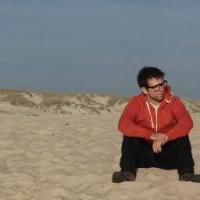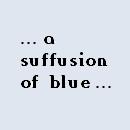
Using same vhd for Native vhd boot as well as in Virtualbox
#1

Posted 10 September 2010 - 11:50 AM
When you boot the same vhd (Windows 7 Ultimate/Enterprise) natively as well as in Virtualbox, the Computer (HAL) is detected differently (at least in the case of an Intel Core 2 Duo). When natively booted, the device under computer is "ACPI X86 Based PC" and within (Oracle) Virtualbox it is "Advanced Configuration and Power Interface (ACPI) PC".
This leads to the device driver being installed each time you switch from Native vhd to Virtualbox and vice versa (asking for a reboot). The easy way to get around this is to check "Enable IO APIC" under the Virtualbox machine System Motherboard settings, which makes it "ACPI X86 Based PC" in both cases. I know this is supposed to slow things down a bit in Virtualbox, but I didn't see much of a difference.
This way you can boot both ways without using "bcdedit /set {guid} hal on".
Hope this helps.
#2

Posted 10 September 2010 - 04:31 PM
set BCD-File=D:\boot\BCD
set VHD-Partition=D
set VHD-File=\win7.vhd
del %BCD-File%
bcdedit /createstore %BCD-File%
for /f "tokens=1-3" %%a in ('bcdedit /store %BCD-File% /create /d "Windows 7" /application osloader') do set guid=%%c
bcdedit /store %BCD-File% /set %guid% systemroot \Windows
bcdedit /store %BCD-File% /set %guid% path \Windows\system32\winload.exe
bcdedit /store %BCD-File% /set %guid% device vhd=[%VHD-Partition%:]%VHD-File%
bcdedit /store %BCD-File% /set %guid% osdevice vhd=[%VHD-Partition%:]%VHD-File%
bcdedit /store %BCD-File% /set %guid% detecthal yes
bcdedit /store %BCD-File% /create {bootmgr} /d "Windows 7 BootManager"
bcdedit /store %BCD-File% /set {bootmgr} timeout 6
bcdedit /store %BCD-File% /set {bootmgr} displayorder %guid%
bcdedit /store %BCD-File% /set {bootmgr} path \bootmgr
bcdedit /store %BCD-File% /default %guid%
bcdedit /store %BCD-File% /enum allCarefully modify the italicised parts to suit your situation, before you use the script:
set BCD-File=D:\boot\BCD
set VHD-Partition=D
set VHD-File=\win7.vhd
Warning: Be careful when playing around with boot files. You are warned.
#3

Posted 10 September 2010 - 06:02 PM
#4

Posted 10 September 2010 - 06:16 PM
@ECHO OFF SETLOCAL ENABLEEXTENSIONS SETLOCAL ENABLEDELAYEDEXPANSION set BCD-File=%1 set VHD-Partition=%2 set VHD-File=%3 IF NOT DEFINED BCD-File SET BCD-File=D:\boot\BCD IF NOT DEFINED VHD-Partition SET VHD-Partition=D IF NOT DEFINED VHD-File SET VHD-File=\win7.vhd
So that you can call the batch with parameters also.
A couple of questions/suggestions:
set BCD-File=D:\boot\BCD
set VHD-Partition=D
set VHD-File=\win7.vhd
Isn't the file ALWAYS named BCD, ALWAYS residing in "VHD-Partiion" and ALWAYS in \boot\ directory?
If this is the case, having ONLY one variable parameter:
set VHD-File=D:\win7.vhdcontains all the needed info.
As a general "standardizing" note a file name does NOT begin with a backslash, so it should be advisable to have:
andset VHD-File=win7.vhd
bcdedit /store %BCD-File% /set %guid% device vhd=[%VHD-Partition%:]\%VHD-File%
bcdedit /store %BCD-File% /set %guid% osdevice vhd=[%VHD-Partition%:]\%VHD-File%
Wonko
#5

Posted 11 September 2010 - 02:16 AM
Thanks for the comments and suggestions.
I wanted to post this to help users that know what they are doing - hence posted as a codebox instead of as a batch file. Also wanted to post this quickly before going off to sleep
As to the questions about the bcd name, partition, etc. I believe they are not necessarily "always" the same : http://homepage.ntlw...ot-process.html
Also, while preparing for deployment, the root of the boot directory could be different.
Further, the bcd file need not be in the same partition. And the partition letters will be different depending on how you have booted while creating the bcd vs. when using it. Advanced users may also want to use [locate] instead of [D:] for the partition (similar to 'find' of grub4dos). You may also be setting the active partition after creating the store thus making it unsafe to automatically determine the active partition. Adding this as another parameter now. No error checking still for the parameters, so users should take care while using.
Will upload the new script code later on.
#6

Posted 11 September 2010 - 11:28 AM
Hope this helps.
#7

Posted 12 September 2010 - 11:54 AM
#8

Posted 12 September 2010 - 01:32 PM
0 user(s) are reading this topic
0 members, 0 guests, 0 anonymous users














